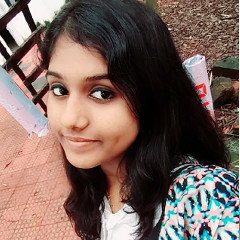'Made in Heaven' is a reality check as you plan to marry

Mail This Article
Marriage is considered to be the most important events in the life of every Indian. As counselling psychologist Deepak Kashyap said in TV talk show 'Satyamev Jayate,' we are born and brought up to get married. Everything ultimately comes down to marriage. The courses that we choose, the jobs that we do and the salary we earn, our one area of focus is always on marriage with gender stereotyping playing a major role.
Women usually think whether they can manage a job after marriage and men decide whether their salary and job is enough to meet their future family's need. The glamorous and colourful picture of a big fat Indian wedding is just like a cover of a book with its content unknown. The reality may not be as pleasant as it appears. This is exactly what the Amazon Prime Video series 'Made In Heaven' addresses.
The web show addresses the hypocrisy of Indian weddings. Tara Khanna and Karan Mehra are wedding planners who owns 'Made in Heaven.' Through the eyes of the wedding planners, the stark reality of elite Indian weddings are exposed to us. The series focuses on many issues such as dowry, rape, honour killings etc. We also become part of the lives of Tara and Karan who are facing their own demons.
Tara Khanna played by Shobita Dhulipala is facing identity issues and also dealing with her husband’s affair. Karan is dealing with being a gay man in a country where homosexuality is still a crime [As of Nov 2018 homosexuality was decriminalised].
Karan Mehra played by Arjun Mathur is the most interesting character of the series. His character transforms from being a discreet person regarding his identity ignoring the injustices faced by gay people in India to finally realising the need to take action against it. We sympathise with his landlord despite the fact that he filed a case against him when he tells him how brave he is and tells him how hard it is hiding one's identity and revealing that one is gay too.
There are many instances when the character and his past memories drive us to tears. The scene where Karan bullies his own best friend and love interest to hide his identity is one of them. Their reconciliation as adults is also one worth mentioning. His character was well written and amazingly developed without including any stereotypical element.
Another interesting character is Kabir Basrai played by Shashank Arora who is the eyes and ears of the series. He is a photographer of the wedding company. His analysis of each marriage at the end of the series is one of the best parts of the series. The most unforgettable dialogue in one of the episode is when he looks at the bride and says 'On the surface it looks like you made a selfish choice but the truth is you were just operating out of the lack of self worth this world has gifted you.'
Other characters of the series like Adil Khanna played by Jim Sarbh, Faiza Naqvi played by Kalki Koechlin and Jazz played by Shivani Raghuvanshi are also really memorable.
This is one of the most realistic series I've ever seen. It not only addresses the hypocrisy of Indian marriages, it also addresses the hypocrisy of the central characters. Their reaction to issues depended on the situation they are in. The instance in which Karan shouts at the 'mehengi' girl when she is not ready to report against rape reflects his own experience in jail. Another instance where he tells a bride to keep mum about the fact that she cheated on her groom also reflects his life where his identity is hidden and he is leading a dishonest life. They also engage in unethical and unprofessional work like spying and finding details of the bride's past for the groom's family.
The visuals in the series portraying various types of marriages in India are a visual treat for the viewers.
And finally, for all the hopeless romantics out there, this will be a reality check!
(Opinions expressed are personal)


